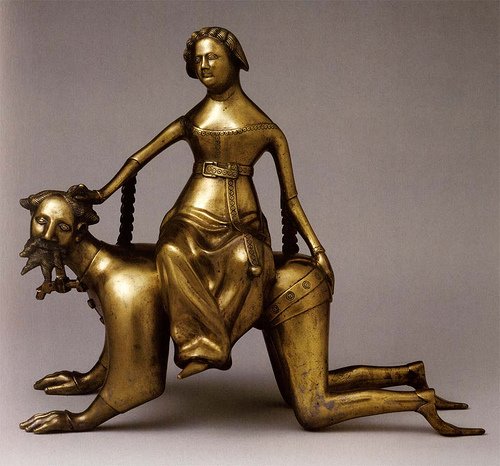The story that Alexander the Great's mistress Phyllis was Aristotle's dominatrix was popular in the late middle ages and early Renaissance. It was supposedly a cautionary tale about seductive women, but was probably also a reflection of burgeoning anti-Aristotelianism.
The story of Phyllis dominating Aristotle probably also appealed to those who found Aristotle's sexism offensive. Aristotle said, after all, that "a woman is, so to speak, a deformed man" (Generation of Animals II.3).
Metaphorically, we might say that Phyllis takes revenge upon Aristotle, on behalf of all women, for his sexism.
It was perhaps particularly galling that Aristotle should explicitly endorse sexism and patriarchy after his teacher, Plato, had argued in the Republic that woman could be Philosopher Queens just as men could be Philosopher Kings.
The story is potentially problematic as a feminist narrative, of course. Phyllis is powerful, yes, but her power comes primarily from her sexuality. (Contemporary image by @ethicistforhire.)

 Read on Twitter
Read on Twitter






